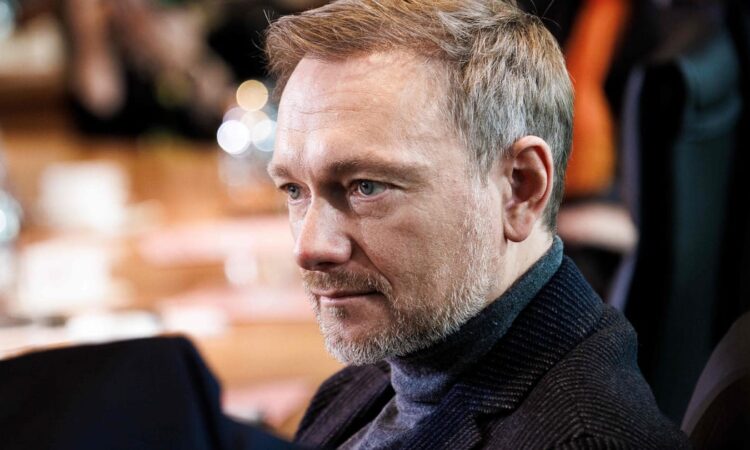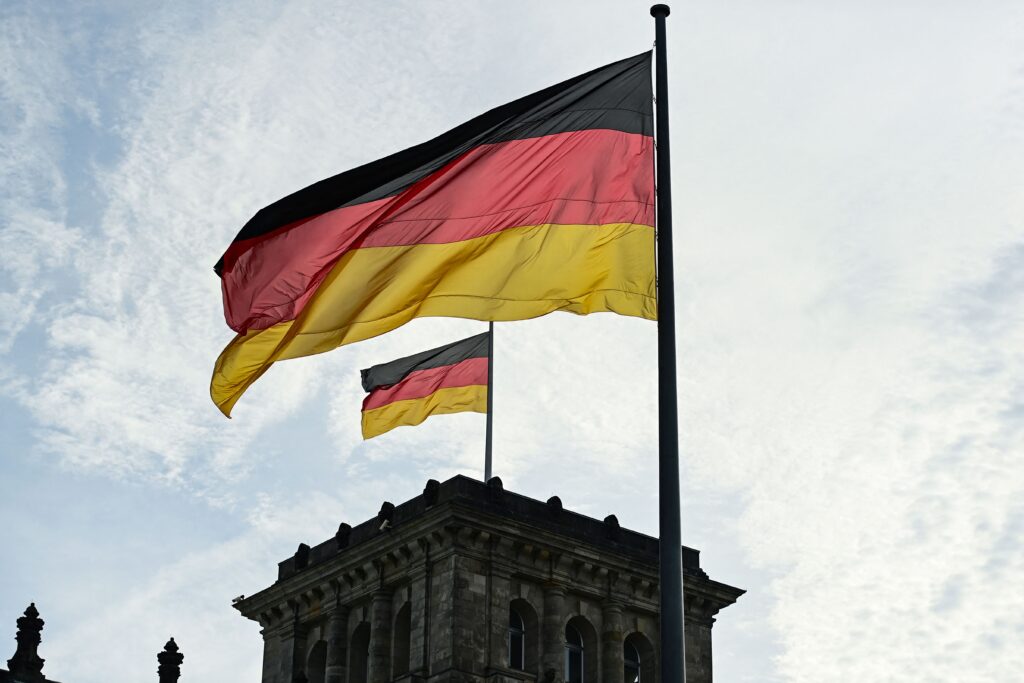
Press play to listen to this article
Voiced by artificial intelligence.
BERLIN — Germany’s ruling coalition has yet to decide whom it will support in the race to lead the European Investment Bank, but Finance Minister Christian Lindner signaled he wants continuity, stressing that the winning candidate should champion “sound banking” and preserve the bank’s cautious approach to lending.
“It’s important for us that the bank retain its good rating and remain on a solid footing,” Lindner told POLITICO in an interview. “We also see scope to improve the agility of the bank and the tempo of decision making.”
Lindner, the leader of Germany’s liberal Free Democrats, declined to say which of the five candidates vying to lead the EIB he would prefer or if he would endorse one of the two frontrunners — Denmark’s Margrethe Vestager, the EU’s competition commissioner who is currently on leave from that role to focus on her candidacy; and Nadia Calviño, Spain’s socialist finance minister. All told, five candidates are vying to lead the EIB, which was founded by EU states in 1958 to support infrastructure projects and regional development.
Vestager, a Danish social liberal with strong environmental bona fides, would be the most natural choice for Lindner. That said, when it comes to the EIB’s lending policies, Vestager has endorsed a more aggressive approach, telling the Financial Times last week that she wanted “more risk taking” at the bank. Critics say the EIB, which lends about 65 billion euros every year, is too timid in its credit practices and argue that a bolder approach is necessary as the EU confronts monumental tasks such as funding the climate transition and rebuilding Ukraine.
In contrast, Lindner cast Werner Hoyer, the bank’s current leader, who has a reputation for being an extremely conservative banker, as a model. Hoyer, who has led the EIB for 12 years and will step down at the end of the year, is a member of Lindner’s Free Democrats, who have a history of pushing for strict fiscal discipline.
“Werner Hoyer sharpened the bank’s profile,“ Lindner said, adding that Hoyer had made “great strides” in areas such as financing projects related to the climate transition.
While Lindner has a strong voice in the cabinet, the EIB decision is not his alone. Chancellor Olaf Scholz, who is understood to support Calviño, also has a say along with Green Economy Minister Robert Habeck. The Greens are expected to embrace Vestager, who in an interview this week stressed the importance of supporting investments in renewable energy, a top Green priority.

If the Germans fail to settle on one of the front-runners, they might support a compromise candidate from among the other three, a group that includes two EIB vice presidents — Teresa Czerwińska and Thomas Östros — and Daniele Franco, a former Italian finance minister.
Lindner said in the interview that he considered all five candidates to be be qualified.
As the bank’s largest shareholder, any candidate is likely to need Germany’s backing. Who France will back is also up in the air, with Paris gauging which candidate is most likely to cater to its interests, including financing nuclear and defense investments.
A decision expected Wednesday on who will take over the European Central Bank’s Single Supervisory Mechanism is also likely to impact the EIB race. If Spain’s Margarita Delgado loses the nomination to Germany’s Claudia Buch, it could potentially open the path to Calviño to lead the EIB.
Paola Tamma contributed reporting.






